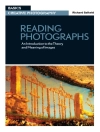A post-communist condition has arisen from the fall of the Berlin Wall and later the Soviet Empire: this book looks at how this condition has manifested itself globally in the production of post-communist film. It argues post-communism is a shared experience on a geopolitical level, unlimited by national state borders, and examines post-communist cross culturalism and global totalitarianism within film.
The book examines different national cinemas and dissimilar cinematic modes – from Russian blockbuster cinema to Chinese independent cinema; from Serbian city films to revolutionary films of Mozambique – all formulated as within the postcommunist condition. It considers the postcommunist film in terms of transnational and World cinema. It covers a wide range of films from small and independent filmmaking to mainstream, popular cinema, and explains post-communist signifiers as manifested in visual culture both inside and outside former, and current, communist countries.












